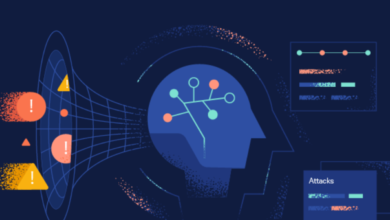A journey through big data, AI, and cloud security with industry expert

As organisations seek to harness the power of data-driven insights to drive innovation and growth, ensuring robust security measures has become more critical than ever
In today’s rapidly evolving digital landscape, the convergence of big data, artificial intelligence (AI), and cloud computing has opened up unprecedented opportunities and challenges for businesses and institutions worldwide.
As organisations seek to harness the power of data-driven insights to drive innovation and growth, ensuring robust security measures has become more critical than ever.
In a recent interview with Ravi Shankar Koppula, a distinguished authority in big data analytics and cloud security, we delved into the intricate dynamics of the data revolution. With over a decade of hands-on experience in the industry, Ravi Koppula provided invaluable insights into the intersection of technology, security, and innovation.
Reflecting on the current scenario, Ravi Koppula emphasised the transformative impact of cloud computing on data analysis. “Cloud computing has revolutionised the way we process and analyse data,” he remarked. “With the scalability and flexibility offered by cloud services, organisations can seamlessly handle large volumes of data, enabling faster decision-making and driving innovation.”
However, amidst the myriad benefits of cloud computing, Ravi Koppula cautioned against overlooking the paramount importance of data security. “While the advantages of cloud computing are undeniable, robust security measures are non-negotiable,” he emphasised. “In today’s threat landscape, organisations must adopt a proactive approach to safeguarding sensitive data from cyber threats and breaches.”
Expounding on the significance of comprehensive security protocols, Ravi Koppula outlined key practices for ensuring cloud security. “From stringent access controls to continuous monitoring and risk assessment, every aspect of cloud security must be meticulously addressed,” he explained. “Moreover, adherence to industry standards, such as FedRAMP authorization, is essential for organisations handling sensitive data, particularly in government sectors.”
Ravi has outlined comprehensive security best practices tailored to safeguarding data and resources within a cloud environment. By adhering to these measures, organisations can fortify their security posture and ensure alignment with relevant regulations.
Firstly, he emphasises the importance of Identity and Access Management (IAM), urging the utilisation of cloud provider services for effective user identity management and access control.
Network Security is highlighted next, recommending the use of Network Security Groups (NSGs) to govern traffic flow to and from cloud resources. Data Encryption is deemed essential to protect data both at rest and in transit, while Data Governance and Compliance policies should be implemented to meet regulatory requirements and enhance governance capabilities.
Monitoring and Logging are advocated for real-time surveillance and analysis of server activities, supplemented by Threat Detection and Prevention systems for proactive security measures.
Adherence to Security Best Practices, including regular assessments and patch management, is paramount. Multi-Factor Authentication (MFA) adds an extra layer of security for accessing cloud resources.
Additionally, a robust Backup and Disaster Recovery strategy is essential for data resilience and business continuity. Finally, regular Audits and Compliance Checks are advised to evaluate the efficacy of security controls and ensure ongoing compliance. Through these holistic security measures, organisations can mitigate risks and maintain the integrity of their cloud-based infrastructure.
Delving deeper into the realm of big data analytics, Ravi Koppula highlighted the transformative potential of machine learning algorithms. “Machine learning algorithms empower organisations to derive actionable insights from vast datasets, driving innovation across various domains,” he observed. “However, it’s imperative to prioritise ethical considerations and data privacy, ensuring responsible use of AI technologies.”
Ravi also underscored the pivotal role of open-source software in advancing big data capabilities. “Open-source tools like ‘R’ and ‘Hadoop’ have democratised access to sophisticated data analytics capabilities,” he noted. “By leveraging these tools, organisations can unlock new opportunities for innovation and gain a competitive edge in the digital landscape.”
In conclusion, Ravi Koppula reiterated the importance of collaboration and knowledge sharing in navigating the complexities of the data revolution. “In an era defined by rapid technological advancements, collaboration among industry stakeholders is key to driving meaningful innovation and addressing emerging challenges,” he remarked. “By staying abreast of evolving trends and embracing a culture of continuous learning, organisations can effectively harness the transformative power of data to drive sustainable growth and innovation.”
As we navigate the data-driven landscape of the 21st century, insights from industry experts like Ravi Shankar Koppula serve as guiding beacons, illuminating the path forward amidst the complexities of the data revolution. With a steadfast commitment to innovation, collaboration, and security, organisations can chart a course towards a future empowered by data-driven insights and technological advancements.


